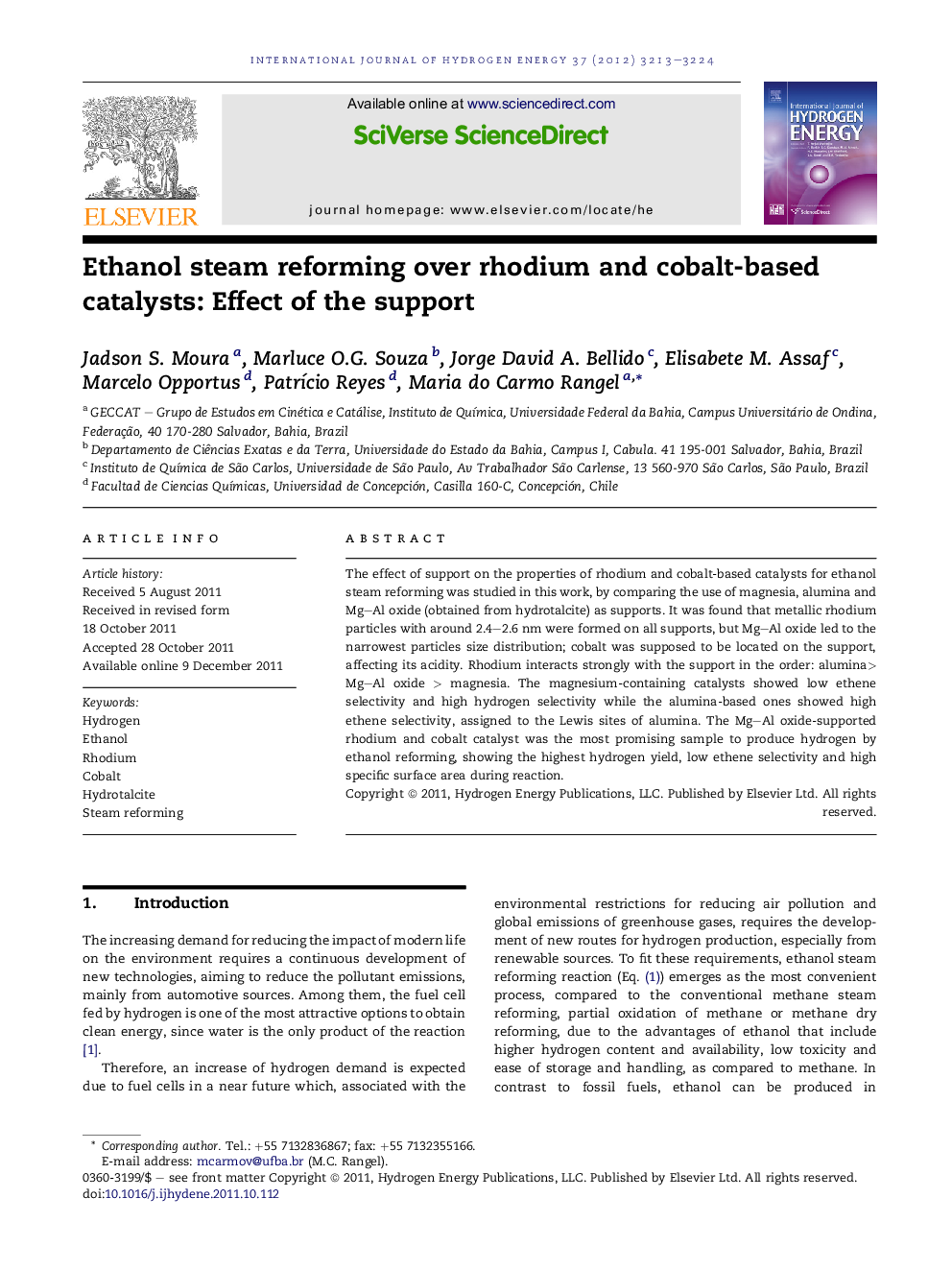| Article ID | Journal | Published Year | Pages | File Type |
|---|---|---|---|---|
| 1282326 | International Journal of Hydrogen Energy | 2012 | 12 Pages |
The effect of support on the properties of rhodium and cobalt-based catalysts for ethanol steam reforming was studied in this work, by comparing the use of magnesia, alumina and Mg–Al oxide (obtained from hydrotalcite) as supports. It was found that metallic rhodium particles with around 2.4–2.6 nm were formed on all supports, but Mg–Al oxide led to the narrowest particles size distribution; cobalt was supposed to be located on the support, affecting its acidity. Rhodium interacts strongly with the support in the order: alumina> Mg–Al oxide > magnesia. The magnesium-containing catalysts showed low ethene selectivity and high hydrogen selectivity while the alumina-based ones showed high ethene selectivity, assigned to the Lewis sites of alumina. The Mg–Al oxide-supported rhodium and cobalt catalyst was the most promising sample to produce hydrogen by ethanol reforming, showing the highest hydrogen yield, low ethene selectivity and high specific surface area during reaction.
Graphical abstractFigure optionsDownload full-size imageDownload as PowerPoint slideHighlights► Rh interacts strongly with the support in the order: alumina > Mg–Al oxide > magnesia. ► Mg-based catalysts have low ethene selectivity and high hydrogen selectivity. ► Al-based catalysts have high ethene selectivity and low hydrogen selectivity. ► Rh and Co supported on Mg–Al oxide led to the highest H2 yield and low ethene yield.
